28 Timeless Quotes By Matthew Arnold
Matthew Arnold was a well-known English poet and cultural critic. His notable works include ‘Dover Beach’, ‘The Scholar-Gipsy’ and ‘Thyrsis’. He is classified as a sage writer who reprimands and commands the reader on social issues prevalent in society. Arnold was later elected as a Professor of Poetry at Oxford, where he was the first one to deliver lectures in English rather than Latin. In the years to come, he began his work as a critic on literary, social, cultural, journalistic and religious issues. Harold Bloom believed that his credentials in the field of literary and social criticism remained unmatched till the 20th century, despite his derivative class of poetry. Matthew Arnold once stated that, "Poetry is simply the most beautiful, impressive, and widely effective mode of saying things." We have collected some of his quotes and sayings from his works and observations. Here are some other beautiful excerpts from his works which has remained eternal through the ages.
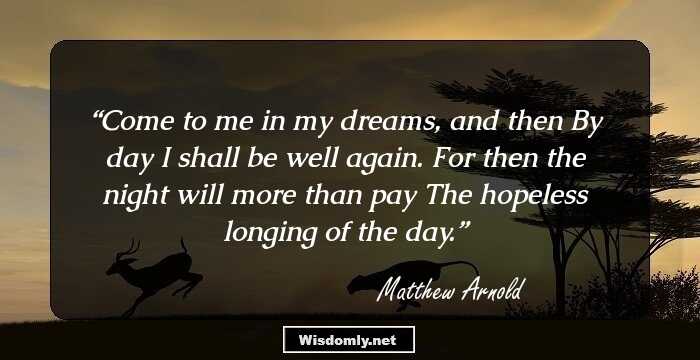
Come to me in my dreams, and then By day I shall be well again. For then the night will more than pay The hopeless longing of the day.
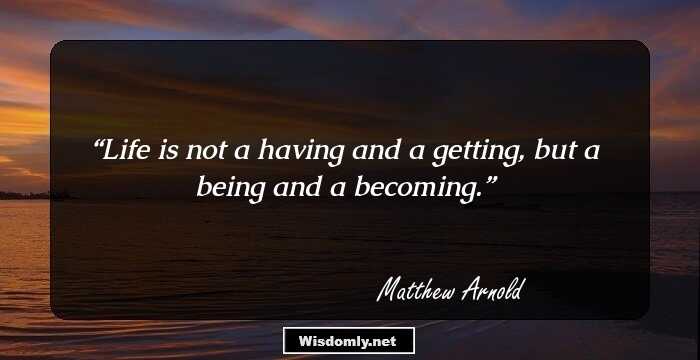
Life is not a having and a getting, but a being and a becoming.
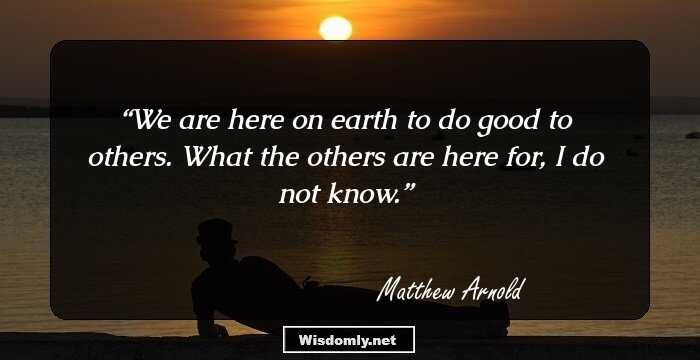
We are here on earth to do good to others. What the others are here for, I do not know.
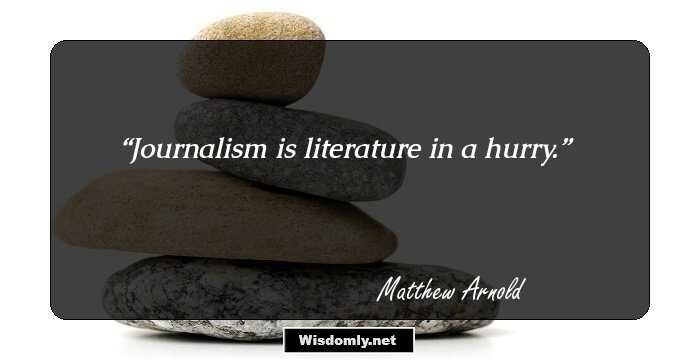
Journalism is literature in a hurry.
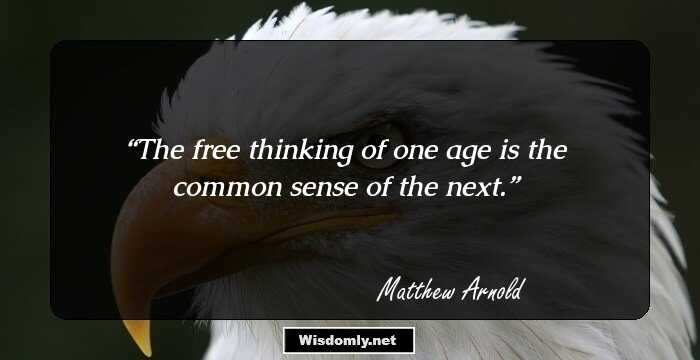
The free thinking of one age is the common sense of the next.
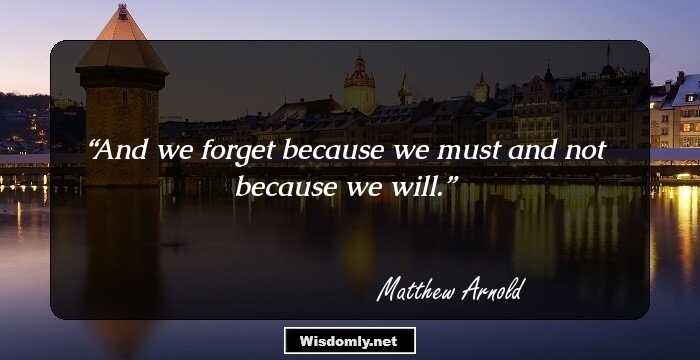
And we forget because we must and not because we will.
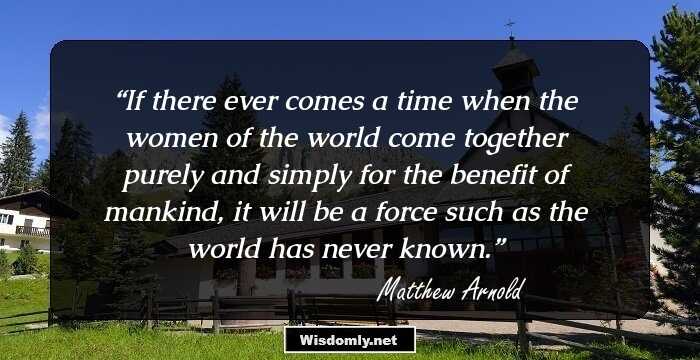
If there ever comes a time when the women of the world come together purely and simply for the benefit of mankind, it will be a force such as the world has never known.
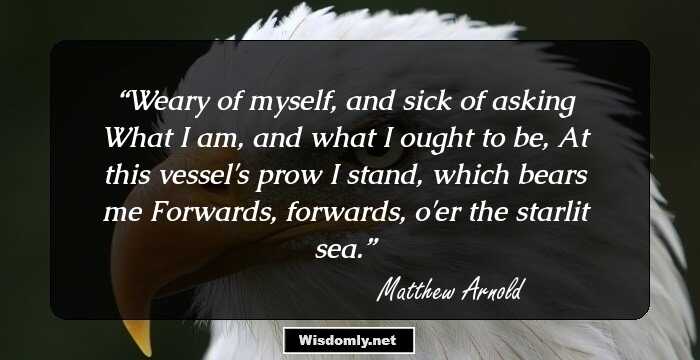
Weary of myself, and sick of asking What I am, and what I ought to be, At this vessel's prow I stand, which bears me Forwards, forwards, o'er the starlit sea.
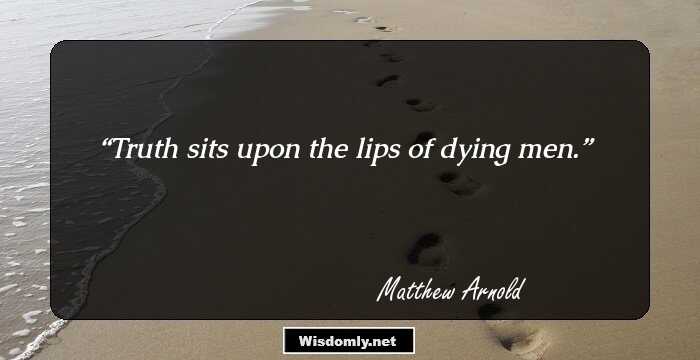
Truth sits upon the lips of dying men.
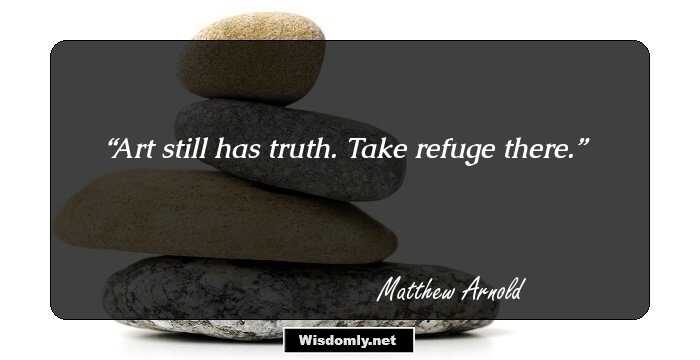
Art still has truth. Take refuge there.
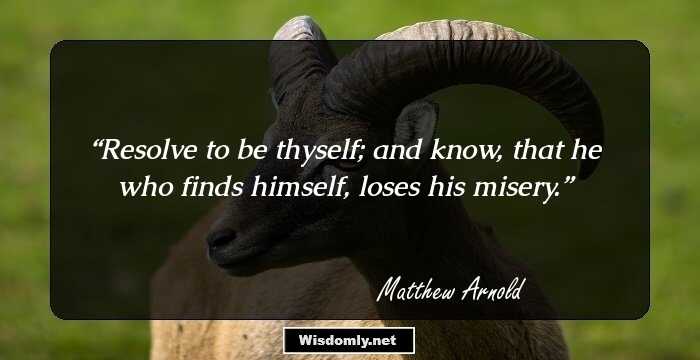
Resolve to be thyself; and know, that he who finds himself, loses his misery.
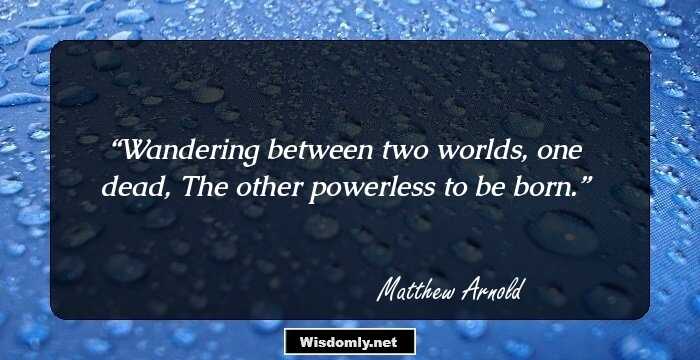
Wandering between two worlds, one dead, The other powerless to be born.
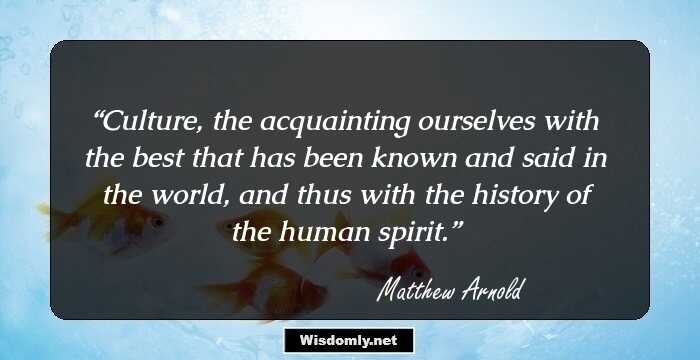
Culture, the acquainting ourselves with the best that has been known and said in the world, and thus with the history of the human spirit.
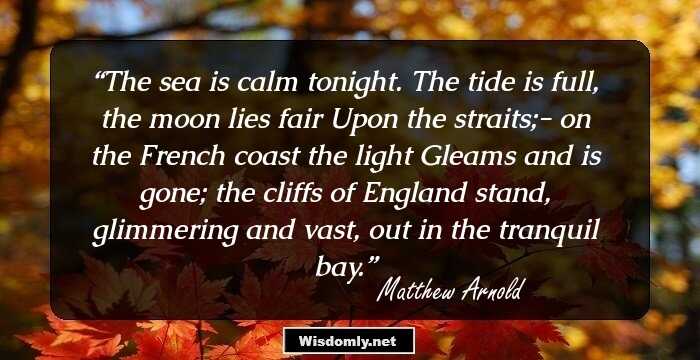
The sea is calm tonight. The tide is full, the moon lies fair Upon the straits;- on the French coast the light Gleams and is gone; the cliffs of England stand, glimmering and vast, out in the tranquil bay.
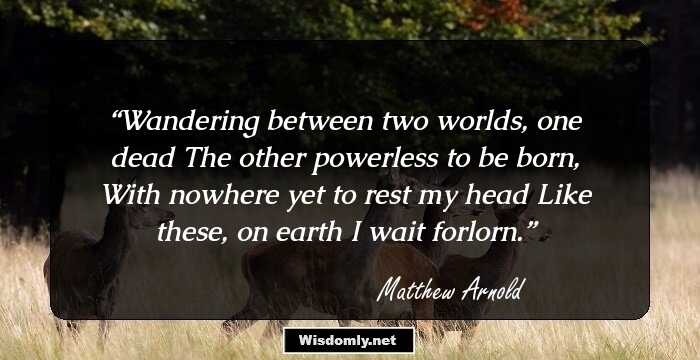
Wandering between two worlds, one dead The other powerless to be born, With nowhere yet to rest my head Like these, on earth I wait forlorn.
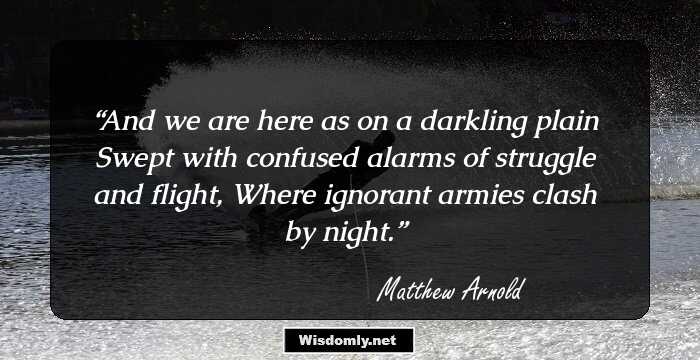
And we are here as on a darkling plain Swept with confused alarms of struggle and flight, Where ignorant armies clash by night.
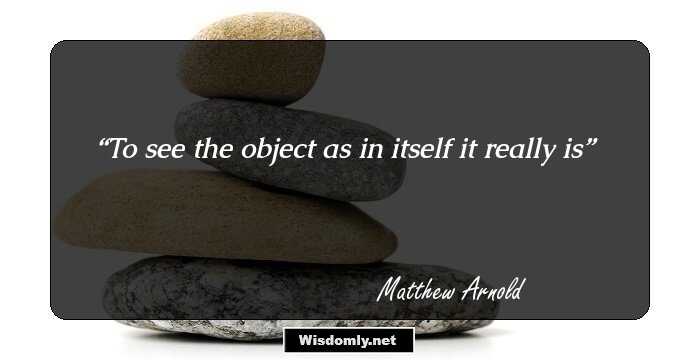
To see the object as in itself it really is
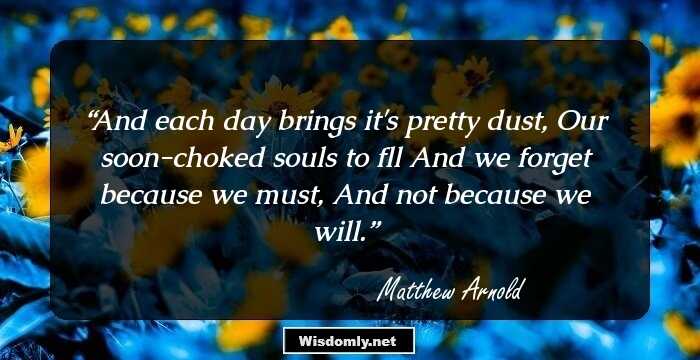
And each day brings it's pretty dust, Our soon-choked souls to fll And we forget because we must, And not because we will.
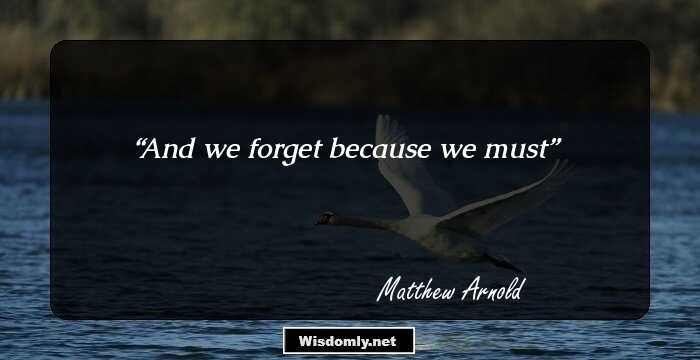
And we forget because we must
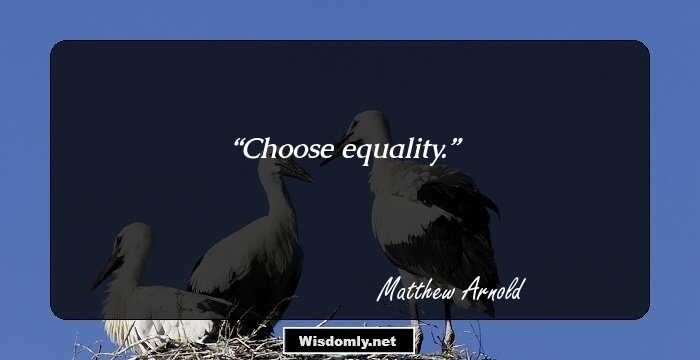
Choose equality.

Alas, is even Love too weak to unlock the heart and let it speak? Are even lovers powerless to reveal To one another what indeed they feel?
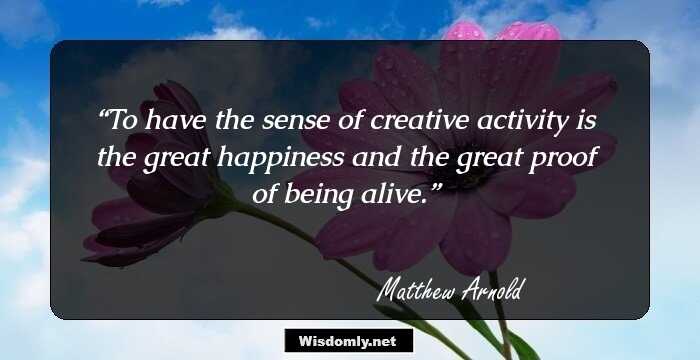
To have the sense of creative activity is the great happiness and the great proof of being alive.
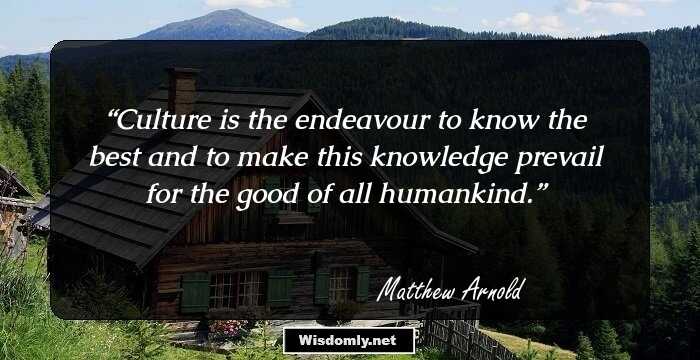
Culture is the endeavour to know the best and to make this knowledge prevail for the good of all humankind.
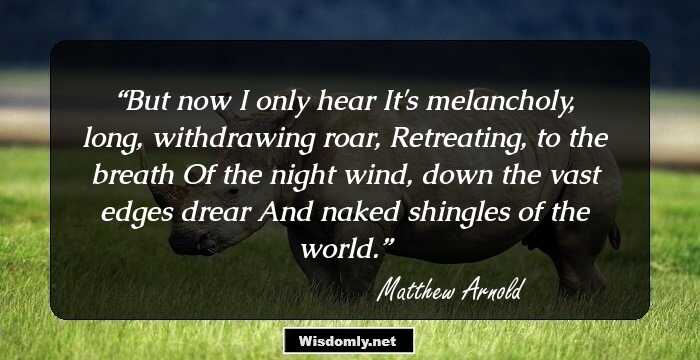
But now I only hear It's melancholy, long, withdrawing roar, Retreating, to the breath Of the night wind, down the vast edges drear And naked shingles of the world.
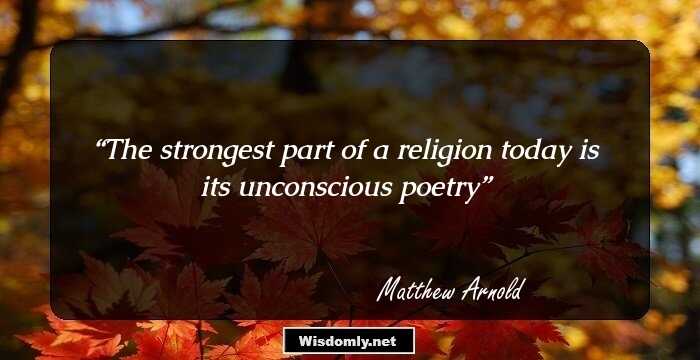
The strongest part of a religion today is its unconscious poetry
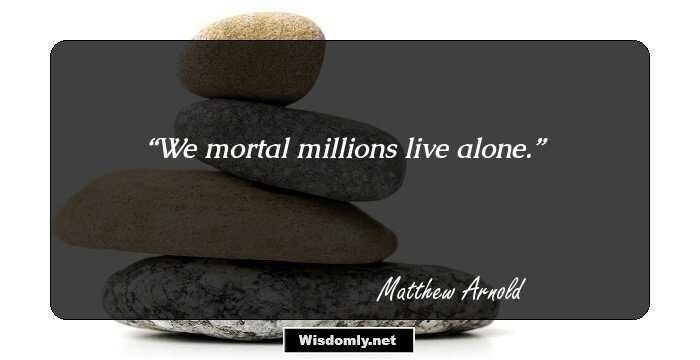
We mortal millions live alone.
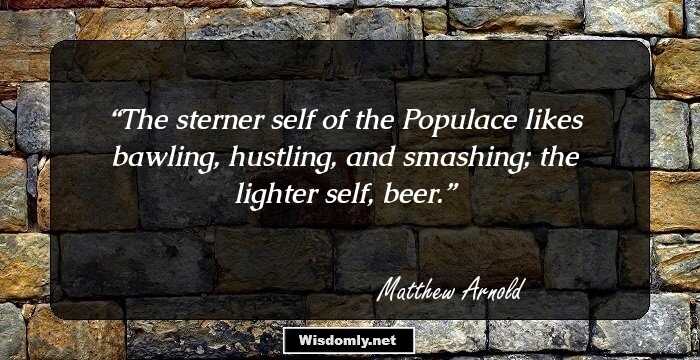
The sterner self of the Populace likes bawling, hustling, and smashing; the lighter self, beer.
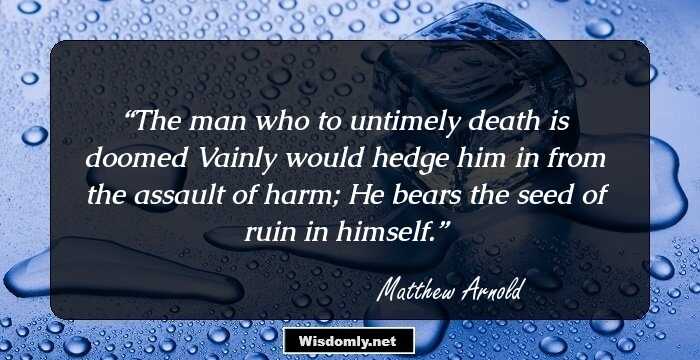
The man who to untimely death is doomed Vainly would hedge him in from the assault of harm; He bears the seed of ruin in himself.










